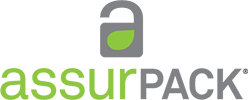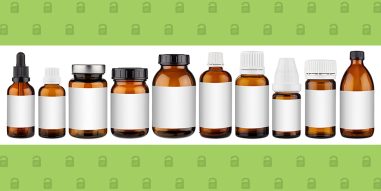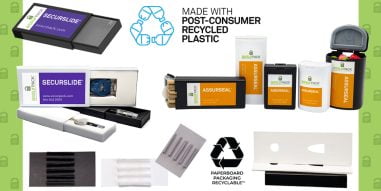Private Labeling CBD Products for Easy Sales
April 28, 2021
Global sales of CBD are expected to hit $5.3 billion in 2025.
But tapping into the CBD opportunity is no easy task. Product formulation and manufacturing require significant capital — even in the case of the simplest CBD products.
Enter private labeling. CBD private labeling is a reselling strategy that outsources product creation to a contract manufacturer who specializes in high-volume CBD production. With production handled, new CBD companies are free to focus on marketing and other business operations.
If you’re considering entering the CBD market as a retailer, private labeling could jumpstart your operation. Here are some tips on how to get started.
Why Resell CBD?
It may seem a little sneaky to brand someone else’s product with your name — especially if you’ve developed other cannabis products yourself or if you’re a well-respected dispensary or cultivator.
However, manufacturing partnerships are common across many industries. Many of the products we consume are made by third parties, and CBD is a perfect candidate for white labeling. In fact, most of the CBD on the market comes from contract manufacturers
Ultimately, CBD is a commodity product; it’s a molecule, not a human invention. The delivery medium matters, of course, but at the end of the day, customer service and branding create a lot of the product experience.
Are “Private Labeling” and “White Labeling” the Same?
While people often confuse the two, private labeling and white labeling are different strategies. The key difference is the customization of the final product.
What is White Labeling for CBD?
White labeling is the practice of rebranding CBD products made by another company without any customization whatsoever. A contract manufacturer provides their CBD formulations to multiple retailer clients.
With white labeling, all retailers do is apply their label and market the product. The product is identical to other products on the market and cannot be modified by the retailer.
Advantages of White Labeling:
- Quickest speed to market
- Low minimum order quantities
- Simple and low risk
Disadvantages of White Labeling:
- Product is generic and cannot be modified
- Requires intensive branding and marketing
A white labeling strategy works well for companies who are just starting out or established companies tentatively experimenting with a new product line. If you have ecommerce experience — or even if you don’t — selling quality, white-labeled CBD online can be a low-risk entry point into a big opportunity.
Private Labeling for CBD
Private labeling gives retailers more control but at a cost of greater complexity, commitment, and time. With private labeling, the contract manufacturer sells a custom-developed product to the retailer — one that’s unique rather than generic.
Usually, the private label product is based on a formulation that the contract manufacturer already uses, such as a CBD gummy. To make the product unique, the retailer may request modifications to the flavor or shape of the product, or add ingredients such as vitamins. Sometimes the retailer brings their own recipe to the manufacturer.
Advantages of Private Labeling
- Unique product (unlike white labeling)
- Faster launch than in-house manufacturing
- High profit potential
Disadvantages of Private Labeling
- Higher minimum order quantity
- Longer lead times
Private labeling is great for established brands rolling out unique products, or new companies with serious intentions and deeper pockets. Yet, once a partnership is established and a product is developed, private labeling in bulk can cost the retailer less per item than white labeling.
The low capital expenditures of private labeling make building out a full line of custom products into a relatively quick process.
How to Find a CBD Manufacturing Partner
Picking a good manufacturing partner is critical. It will ensure that you have the backing you need to succeed. There are a few things to verify before signing a contract for white labeling or private labeling services.
- Check the product’s quality by using the CBD yourself and give some to friends. How’s the taste? Would you buy this product yourself?
- Verify the product’s quantity. Request samples and take them to an accredited testing laboratory for analysis. Many CBD products on the market don’t have the labeled quantity of CBD. A discrepancy in your product can cost you customers or even create legal problems.
Also ensure that the product tests below the THC threshold allowed by federal authorities. (CBD products should contain no more than 0.3% THC). Make sure it’s free from pesticides and heavy metals, which are common contaminants of CBD.
- Verify the manufacturer’s ability to deliver. Not all product manufacturers have the bandwidth to service new clients. And some may not have the financial stability to be reliable long-term. Ask for testimonials from their customers.
- Confirm the financial terms of working with the manufacturer, and make sure there are no hidden costs. Many manufacturers offer low prices for white labeled products — yet those low prices only apply to very large orders.
Market Your Product
With any reselling strategy, the magic is in the marketing. How you approach marketing and customer service will determine your success or failure.
Connect Online
Online CBD sellers can gain quick traction with affiliate marketing or influencer marketing. With this strategy, the seller provides a commision to affiliate marketers who direct customers their way.
Some of the affiliates market the product only to their friends and family; other affiliates are “influencers” with large social media followings and the ability to give your product lots of exposure.
The best influencers for CBD marketing are involved in fitness, beauty, natural healthcare or pet care, depending on the type of CBD product. Retailers can solicit influencers directly or work through an affiliate directory to post their partnership opportunity to a wider network of smaller affiliates.
Educate Your Customers
Educational content drives engagement with CBD brands, too. Because CBD is relatively new, consumers have lots of questions such as “will CBD get me high?” If you can answer their questions — while keeping a close eye on SEO — you become a trusted source for knowledge and CBD products. The nonprofit Project CBD is a trusted source for CBD information if you need it.
Another important component of CBD marketing is proper labeling. You’ll want to use a label that legally protects your brand and consumers. If your label claims to prevent or cure any disease, you can expect a warning letter from the FDA in the future.
The best practice for CBD labeling is a clear statement of the ingredients and concentration of the product, along with a disclaimer similar to those found on supplements. (“This product is not intended to diagnose, treat, cure, or prevent any disease…”)
Consider Your Packaging
Packaging is a key differentiator for branding and an important part of the product experience, yet the packaging options offered by contract manufacturers can be surprisingly limited. Either reselling strategy — private labelling or white labeling — can benefit from better packaging.
If you’ve developed a great formula for a CBD product, you can top it off with industry leading packaging such as the AssurSeal® from AssurPack®. It has a distinctive shape that makes your product stand out. Even better, it’s astoundingly airtight for shelf life that lasts for months and months.For more information about how AssurPack® can support your CBD business plan, feel free to contact a representative now.




